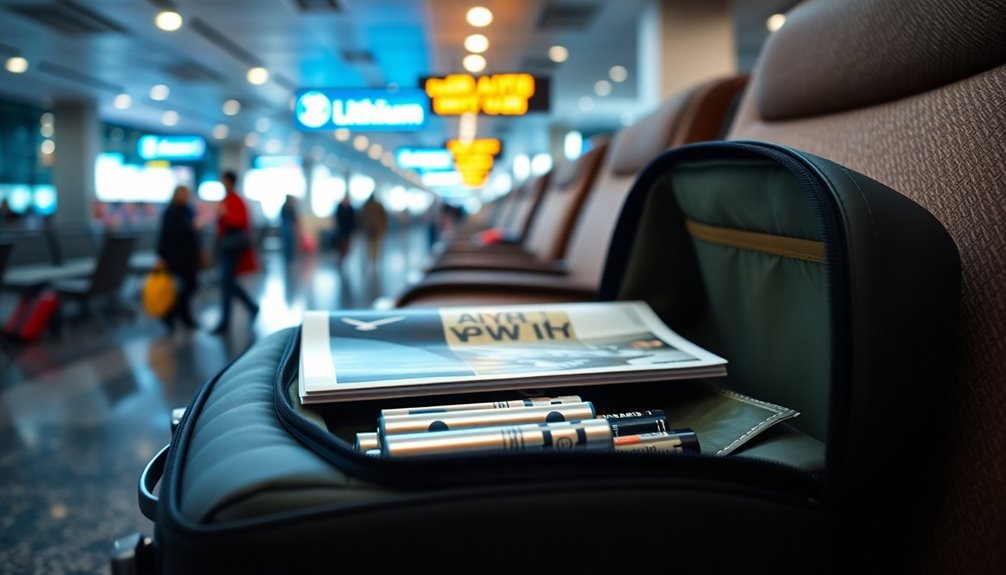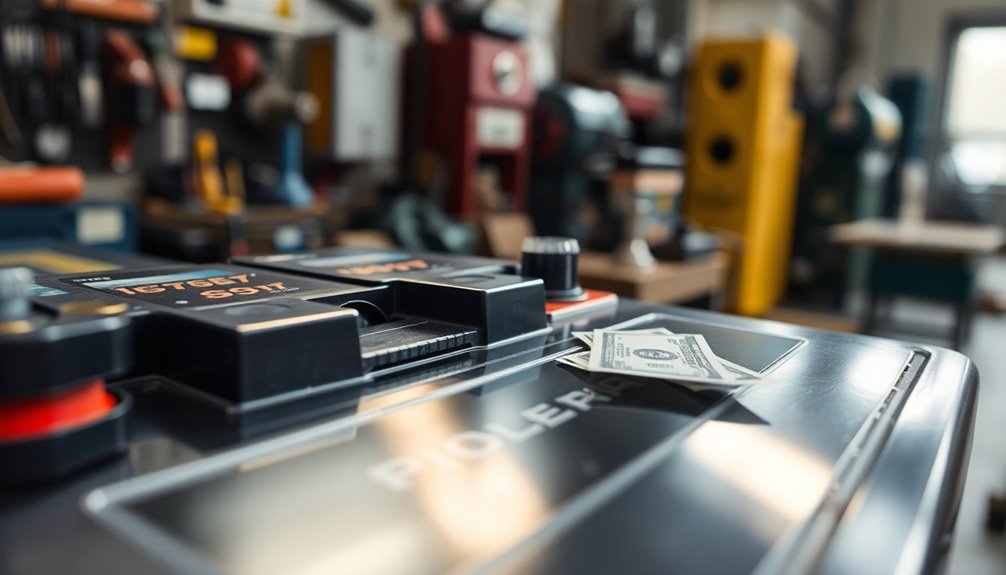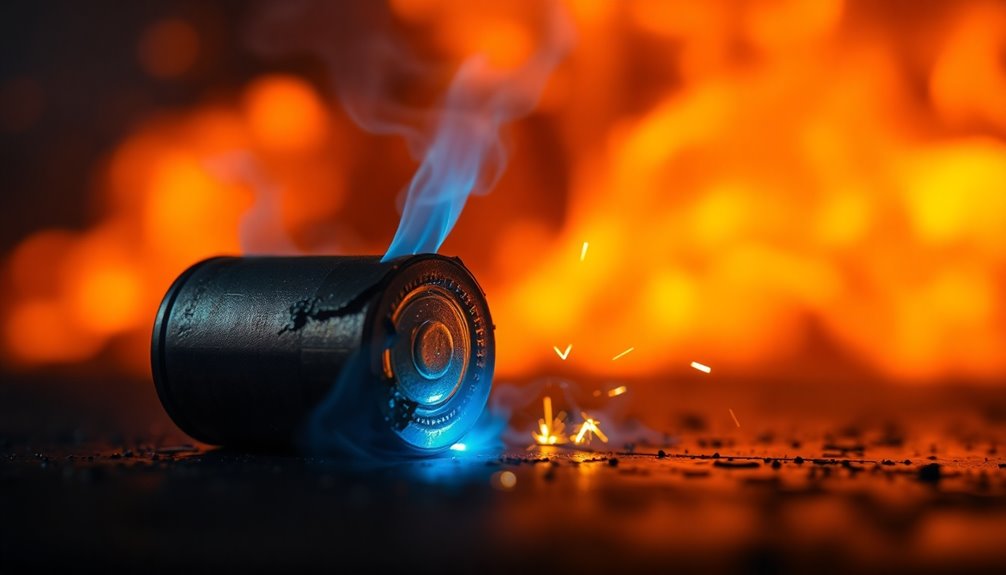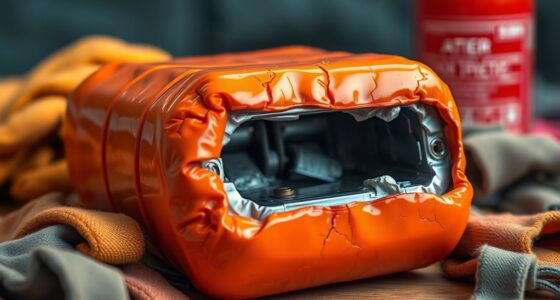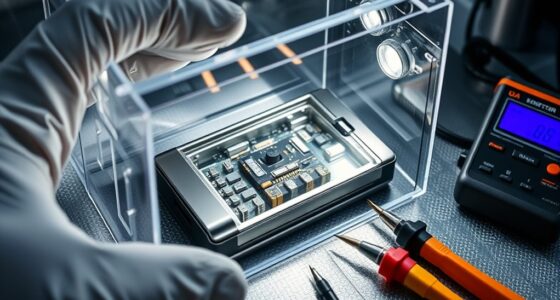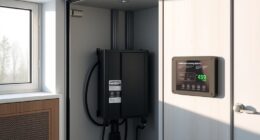Yes, you can bring lithium batteries on a plane, but there are important rules to follow. Always pack lithium-ion batteries in your carry-on luggage, as checked bags aren't allowed for those over 100Wh. If your battery exceeds that, you'll need your airline's approval. Store spare batteries in protective cases to avoid short-circuiting, and make sure devices are turned off. Keep in mind that different airlines have varying regulations, so check their policies before you travel. Understanding these guidelines can make your journey smoother and safer, and you might find some helpful tips for your next trip ahead.
Key Takeaways
- Carry lithium batteries in your carry-on luggage, as checked baggage is prohibited for batteries over 100Wh due to fire risks.
- Batteries up to 160Wh are allowed with airline pre-authorization; check airline-specific policies before traveling.
- Store spare batteries in original cases or protective bags to prevent short-circuiting and overheating during the flight.
- Always keep devices powered off and unplugged, and inspect for damage before packing to minimize fire hazards.
- Report any signs of overheating or damage to cabin crew immediately for safety.
Lithium Battery Regulations
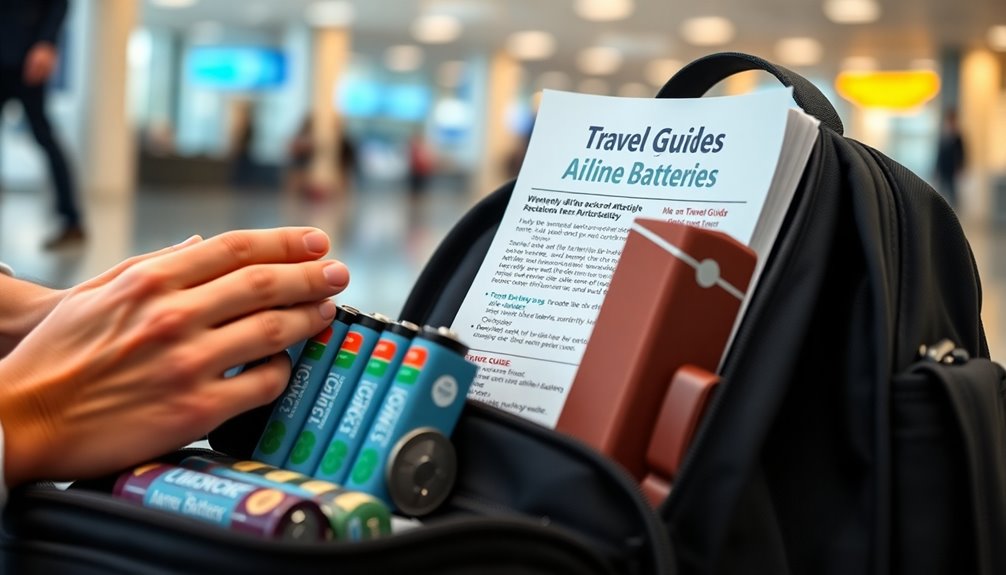
When you're planning to travel, it's crucial to understand lithium battery regulations to avoid any issues at the airport.
The FAA prohibits lithium-ion batteries over 100 watt-hours (Wh) in checked baggage, so you must carry them in your carry-on luggage instead. If you have lithium-ion batteries up to 160Wh, you can bring them with pre-authorization from the airline, but many e-bike batteries exceed this limit, making them off-limits for air travel.
Additionally, spare batteries need to be stored in protective cases to prevent short-circuiting and must adhere to specified watt-hour ratings.
Always check individual airline policies regarding lithium batteries, as rules vary and can change, especially due to fire risks associated with these batteries.
Safe Packing Practices
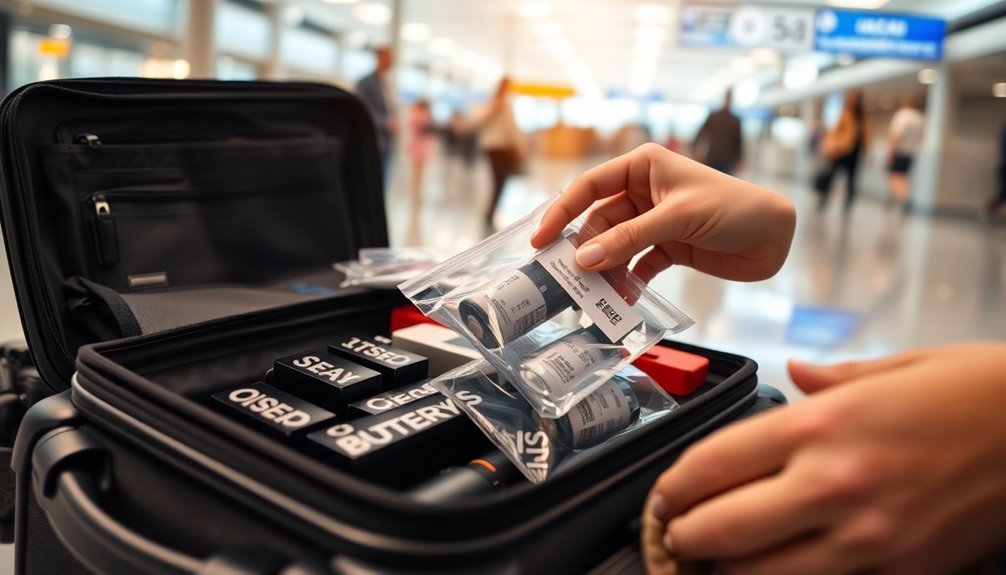
Packing lithium batteries safely is essential for a smooth travel experience.
To comply with TSA guidelines and safety regulations, follow these best packing practices:
- Store spare lithium batteries in their original cases or ziplock bags to prevent short circuits.
- Keep devices powered off and unplugged during the flight to minimize risks.
- Always carry lithium batteries in your carry-on luggage instead of checked baggage.
Airline-Specific Policies
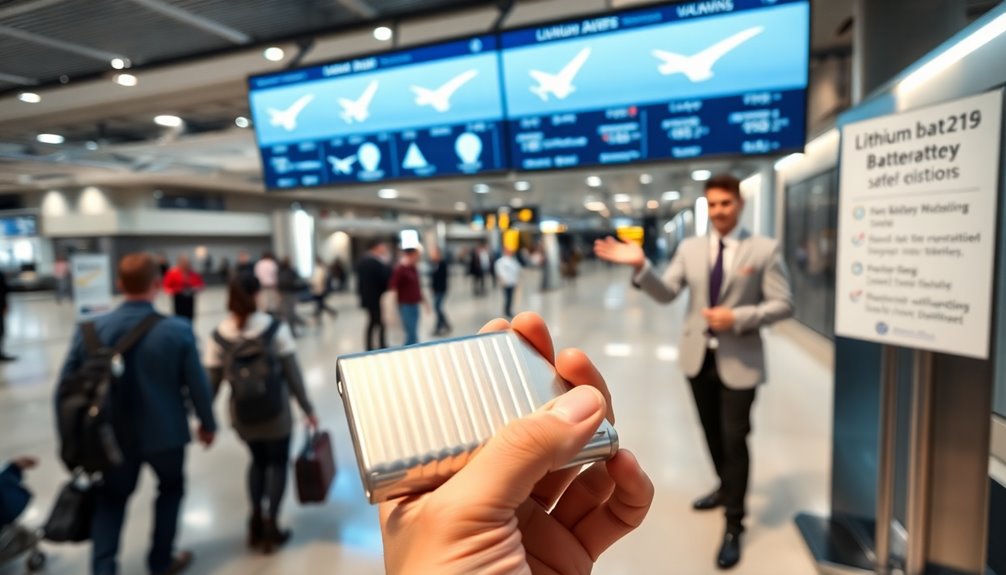
Airlines have their own specific policies regarding the transport of lithium batteries, and understanding these can help you avoid issues during your travels.
American, United, and Delta Airlines impose strict restrictions, often prohibiting electric bikes and high-capacity battery devices due to safety concerns. In contrast, Alaska Airlines allows e-bikes if the battery is removed and carried separately.
Most airlines enforce a watt-hour limit of 100Wh for lithium batteries in your carry-on luggage, with a maximum of 160Wh allowed only with pre-authorization.
Be aware that specialized batteries, like those for Turbo Levo SL and Brompton Electrics, exceed these limits, making them non-compliant without prior approval.
Always check your airline's specific policies before you transport electronic devices.
Risks of Lithium Batteries
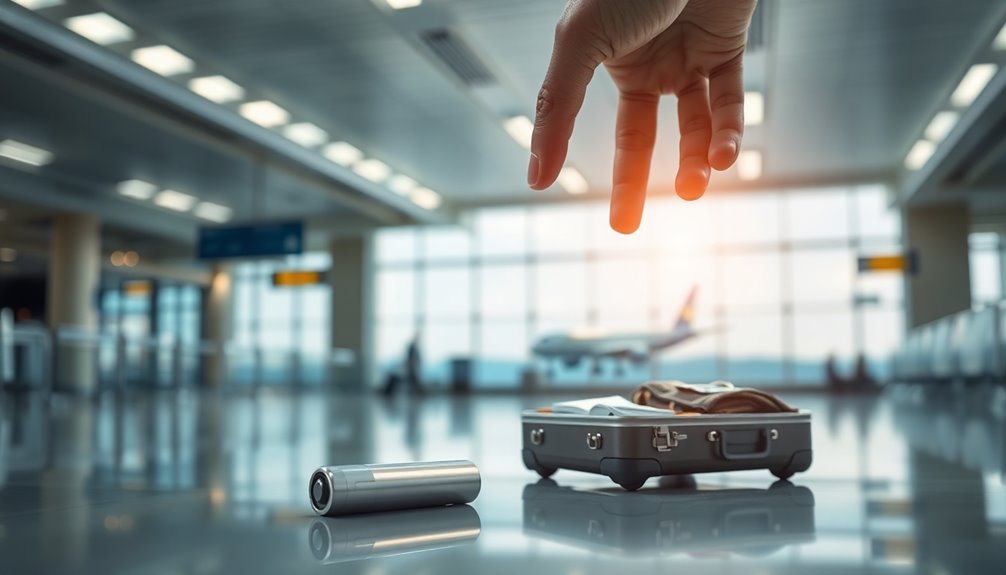
Although lithium-ion batteries power many of your favorite devices, they also carry significant risks, especially when damaged or overheated.
The Federal Aviation Administration (FAA) restricts lithium batteries over 100 watt-hours from being placed in checked baggage, requiring you to keep them in your cabin luggage. This is to minimize potential fire hazards.
Consider these risks:
- Thermal runaway can occur at high altitudes, leading to fires.
- Overheating might happen if a device is damaged or malfunctioning.
- Short-circuits can spark uncontrollable flames in confined spaces.
To enhance safety, follow protocols: regularly inspect your portable devices, keep them powered off during takeoff and landing, and report any overheating signs to the cabin crew immediately.
Travel Tips for Passengers
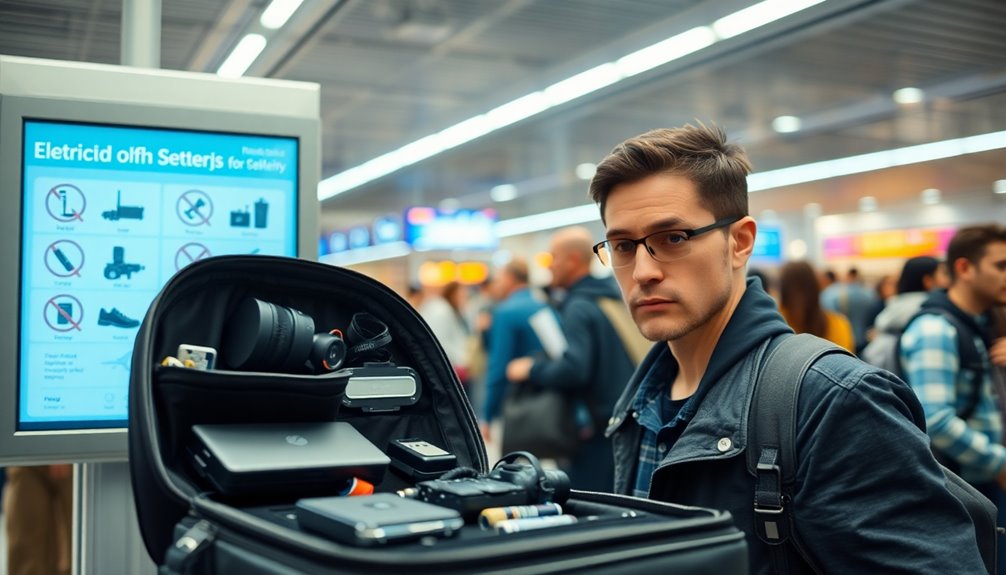
When you're traveling with lithium batteries, it's crucial to keep safety in mind to avoid potential hazards.
Always pack lithium batteries in your carry-on luggage, as spare lithium metal and lithium-ion batteries are prohibited in checked baggage due to fire risks.
Make sure your lithium-ion batteries don't exceed 100 watt-hours (Wh) unless you have airline approval for those between 100-160Wh.
To prevent short-circuiting, store spare batteries in their original packaging or protective cases.
Familiarize yourself with specific airline policies since requirements can vary, especially with airlines like Alaska Airlines.
Finally, arrive at the airport early to allow for any potential delays at security inspection, as personnel may need to check your batteries.
Follow these travel tips for a smooth journey!
Frequently Asked Questions
Can I Fly With Lithium Batteries in My Carry-On?
Yes, you can fly with lithium batteries in your carry-on. Just make certain the batteries are under 100 watt-hours, as they're generally allowed without extra approval.
If you have spare batteries, keep them in your carry-on and make sure they're stored in protective cases to avoid short-circuiting.
Always check with your airline for any specific policies, as regulations can vary.
Don't forget to power off devices containing these batteries during takeoff and landing!
What Is the New Rule for Lithium Batteries?
Did you know that in recent years, incidents involving lithium batteries have increased by over 30%?
This surge has led to stricter regulations. The new rule states that batteries over 100 watt-hours can't be checked in; they must go in your carry-on.
For batteries between 100Wh and 160Wh, you'll need airline approval.
Always store spare batteries in protective cases to prevent short-circuiting, and be ready to declare them at security if needed.
Why Does TSA Ask if You Have Lithium Batteries?
The TSA asks if you have lithium batteries to guarantee safety during your flight. These batteries can pose fire risks if damaged or improperly packed, so they want to monitor your items closely.
When you carry them in your carry-on, it allows for quick access in case of emergencies. Knowing the watt-hour rating of your batteries helps you comply with regulations and avoids potential delays at security checks.
Stay informed and travel safely!
What Are Examples of Lithium Batteries Not Allowed on Planes?
When it comes to taking lithium batteries on planes, "better safe than sorry" really applies.
You'll find that batteries exceeding 100 watt-hours, like the Specialized Turbo Levo SL (320Wh) and Brompton Electrics (300Wh), aren't allowed.
Also, personal devices like hoverboards typically contain lithium batteries that exceed the limits.
Conclusion
So, before you jet off with your gadgets, remember to check the lithium battery regulations and pack smartly. Each airline has its own rules, so don't be caught off guard like a time traveler with a flip phone! Understanding the risks and following travel tips can keep your journey smooth and hassle-free. Whether you're toting a laptop or your trusty e-reader, staying informed guarantees you'll be soaring through the skies without a hitch!

